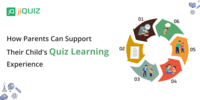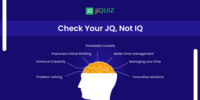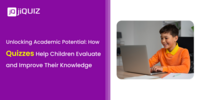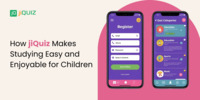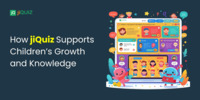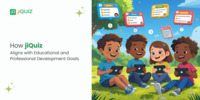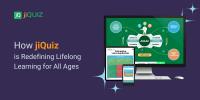- Nov 19, 2024
- Updates
- 1594
Share this post on:
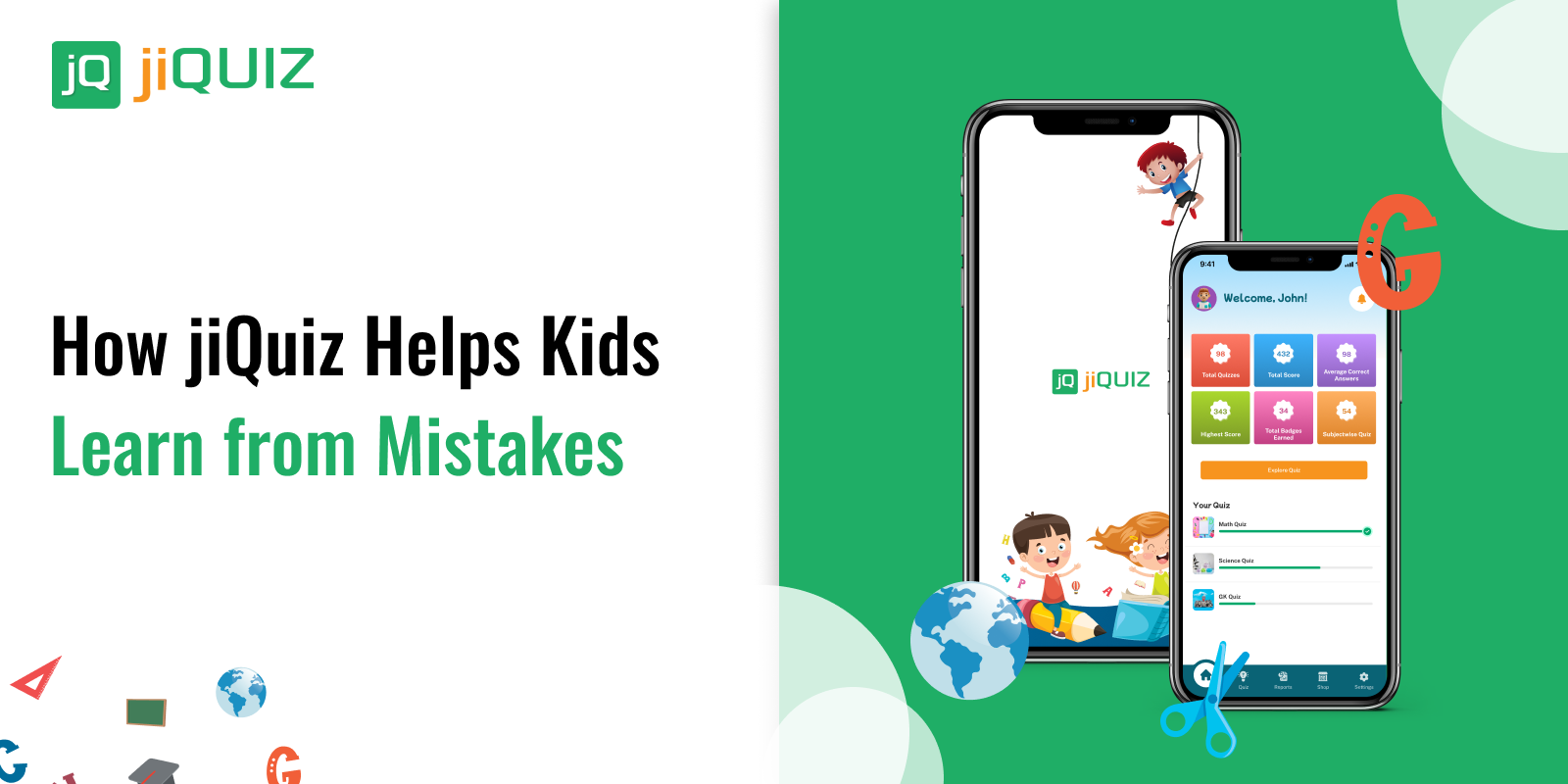
As a parent, teacher, or guardian, you want your child to develop into a confident and independent individual who is not afraid to take risks and make mistakes. However, many of us worry that our children will become discouraged by failures and give up on their goals and aspirations.
One effective way to help kids learn from mistakes is through the use of jiQuiz. It is jiQuiz is an interactive learning tool that breaks down complex information into smaller pieces, allowing learners to piece together new knowledge and understanding. In this article, we'll explore how jiQuiz can help kids develop a growth mindset and learn from their mistakes.
What is a JiQuiz?
jiQuiz is an online quiz platform that helps students learn by breaking down complex questions or problems into smaller, more manageable parts. Each part is then assigned to a different learner, who must research and gather information to answer the question correctly. This interactive approach encourages learners to think critically, collaborate with others, and learn from their mistakes.
How JiQuiz Help Kids Learn from Mistakes
1. Encourages Critical Thinking: jiQuiz require kids to think critically about a topic or subject. By breaking down complex information into smaller pieces, they must analyze and evaluate the different parts to come up with an accurate answer. This helps develop critical thinking skills, which are essential for learning and problem-solving.
2. Fosters Collaboration: In a jiQuiz, learners often work together in teams to gather information and complete tasks. This collaborative approach promotes teamwork, communication, and social skills – all of which are vital for building strong relationships with others.
3. Develops Problem-Solving Skills: jiQuiz present kids with real-world problems or challenges that they must solve. By working through these problems, they develop problem-solving skills, including analysis, evaluation, and decision-making.
4. Helps Build Resilience: When kids participate in jiquiz, they may encounter setbacks or mistakes along the way. However, by learning from their mistakes and persisting in the face of challenges, they build resilience – a key component of success in all areas of life.
5. Promotes Self-Reflection: Jiquiz often require learners to reflect on their own thought processes and learning strategies. This self-reflection helps kids identify areas for improvement and develop metacognitive skills, which enable them to adjust their approach as needed.
Benefits for Parents and Teachers
1. Enhances Learning Experience: Jiquiz can enhance the learning experience by making it more engaging, interactive, and relevant to real-life situations.
2. Develops Soft Skills: By incorporating jiquiz into their curriculum or teaching practice, parents and teachers can help kids develop essential soft skills, such as teamwork, communication, and problem-solving.
3. Supports Different Learning Styles: Jiquiz cater to different learning styles by breaking down complex information into smaller pieces, allowing learners to absorb and process information at their own pace.
4. Fosters a Growth Mindset: By embracing challenges and learning from mistakes, kids develop a growth mindset – the understanding that abilities and intelligence can be developed through dedication and hard work.
Best Practices for Using JiQuiz
1. Set Clear Goals and Expectations: Before introducing jiquiz to your child or students, set clear goals and expectations for what they should achieve.
2. Provide Support and Guidance: Offer support and guidance as needed, but also encourage learners to take ownership of their learning process.
3. Make It Fun and Engaging: Make sure the jiquiz is fun and engaging – incorporating elements of competition or gamification can help motivate kids to learn.
4. Encourage Collaboration: Encourage collaboration among team members by promoting open communication, active listening, and respectful debate.
5. Emphasize Effort Over Outcome: Emphasize the importance of effort and persistence over outcome – praising kids for their hard work and progress, rather than just their results.
Tips for Implementing JiQuiz
1. Start Small: Begin with simple jiquiz that break down complex information into smaller pieces.
2. Use Online Resources: Utilize online resources and tools to create and administer jiquiz – many educational platforms offer pre-made templates and lessons.
3. Involve Parents and Students: Involve parents and students in the planning process, ensuring everyone is on the same page and committed to the learning experience.
4. Monitor Progress: Regularly monitor progress and adjust the difficulty level as needed to keep learners engaged and challenged.
5. Celebrate Successes: Celebrate successes and achievements along the way – recognizing effort and progress helps build confidence and motivation.
By incorporating jiQuiz into your teaching practice or daily routine, you can empower kids to develop a growth mindset, learn from their mistakes, and achieve academic success.
Conclusion
jiQuiz is a powerful tool for teaching kids how to learn from mistakes. By breaking down complex information into smaller pieces and encouraging critical thinking, collaboration, and problem-solving skills, jiQuiz helps kids develop essential soft skills and build resilience. So, if you are looking to enhance and develop skills iof your kids, jiQuiz is the best platform. Try today.

